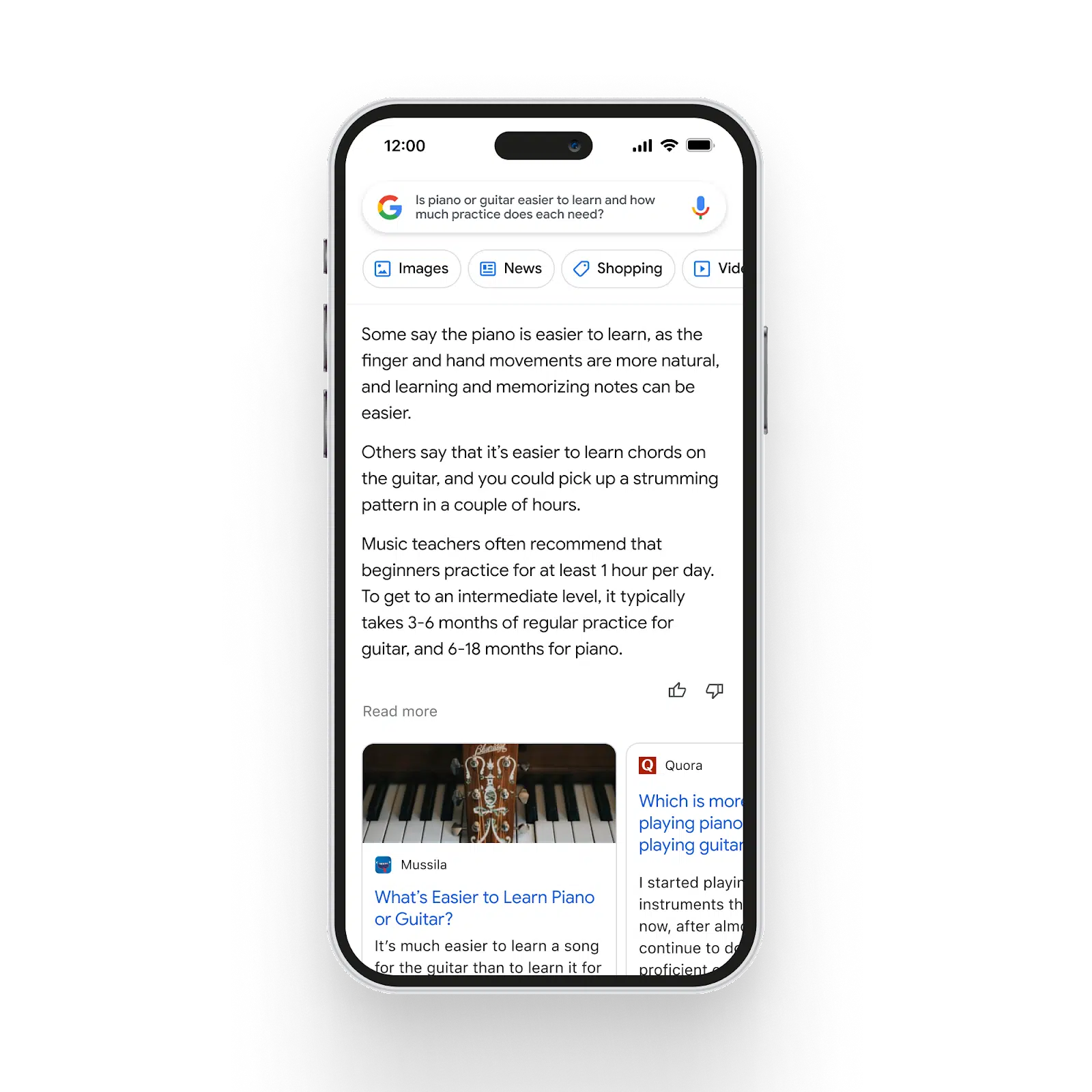Conversational AI ‘absolutely’ coming to Google Search, says CEO Sundar Pichai
Chatbots don't pose a threat to Google’s search business – they offer an even bigger 'opportunity space,' according to Pichai.
Large language models (LLMs) will eventually be part of the Google search experience. We still don’t know when conversational AI will appear in Search, but Google CEO Sundar Pichai promises it’s coming.
Why we care. The new BingGPT search with integrated AI chat generated a lot of excitement, but so far has only resulted in small gains in search engine market share. The biggest questions we’re all waiting to find out the answers to when Google deploys AI-powered chat into search:
- How much of an impact will it have on the amount of organic traffic Google sends?
- Will it impact the ROI for the brands and organizations who use Google Ads?
What he’s saying. “Will people be able to ask questions to Google and engage with LLMs in the context of search? Absolutely,” Pichai said in an interview with The Wall Street Journal.
Also of note: Google is “testing several new search products, such as versions that allow users to ask follow-up questions to their original queries,” according to Pichai.
Chatbots are an opportunity. Search ads generated $162 billion in revenue for Google in 2022. There has been lots of speculation about whether chatbots and generative AI pose a legitimate threat to Google’s core search business. Pichai downplayed any threat, saying:
- “The opportunity space, if anything, is bigger than before.”
The bigger picture. We’ve known since January that Google had plans to debut chatbot features within search. We got our first look at those with the preview of Bard on Feb. 6.
This is when the confusion began. Google has since tried to make clear that Bard is not search – Bard is a standalone, generative AI product like ChatGPT.
However, at the same time Google announced Bard, Google previewed what its AI-generated answers would look like in search. Not surprisingly, Bard became short-hand for these new AI chat features. As a reminder, here’s what those might look like:

Google is “committed to getting it right with the publisher ecosystem.” Meanwhile, in a separate interview, Pichai was recently asked a question by Casey Newton that several digital publishers have been eagerly wanting an answer to:
“Today, lots of digital publishers rely on the traffic they get from Google. They get ad impressions. That pays their bills. When Bard is at its best, it answers my questions without me having to visit another website. I know you’re cognizant of this. But man, if Bard gets as good as you want it to be, how does the web survive?”
– New York Times podcast, Google C.E.O. Sundar Pichai on Bard, A.I. ‘Whiplash’ and Competing With ChatGPT
Pichai’s answer:
“I think through our work across, I think we’ll be committed to getting it right with the publisher ecosystem. In search today, while these things are contentious, in search, we take pride, it’s one of the largest sources of traffic. If I look at it year-on-year, the traffic we send outside has only grown. That’s what we’ve accomplished as a company.
Part of the reason we are also being careful with things like Bard, amongst many reasons, we do want to engage with the publisher ecosystem, not presume how things should be done. And so you will see us thoughtfully evolve there as well.”
That doesn’t read like Pichai has any answers right now. Meanwhile, Microsoft is discussing ad revenue sharing – at least with some publishers.
Related stories
New on Search Engine Land